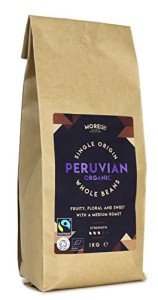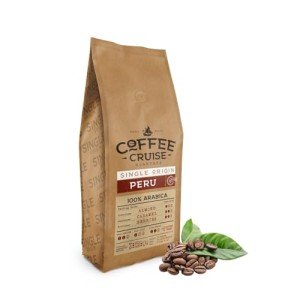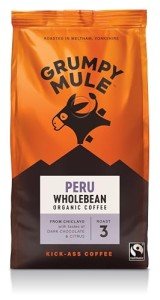Coffee lovers around the globe understand that the journey from bean to cup is not merely a logistical accomplishment but an intricate story that involves farmers, land, and tradition. One of the most celebrated origins for coffee is the unparalleled Machu Picchu region in Peru. Known for its rich biodiversity and ideal climatic conditions, this area produces some of the most sought-after coffee beans in the world. This guide delves into Fairtrade Machu Picchu whole bean coffee, examining its quality, ethical background, brewing methods, and reasons to choose Fairtrade options.
What Makes Machu Picchu Coffee Special?
Machu Picchu coffee is not just another caffeinated beverage; it's a representation of Peru's cultural heritage and agricultural biodiversity. Key characteristics that make this coffee unique include:
-
Terroir Influence: The altitude, microclimates, and varied ecosystems of Machu Picchu create a distinctive flavor profile. The coffee often exhibits notes of fruit, chocolate, and a pleasant acidity.
-
Sustainable Practices: Many farmers in this region adhere to sustainable agriculture practices, preserving the environment while ensuring quality.
-
Cultural Significance: Coffee is more than just a crop; it’s interwoven with the lifestyle and economic structure of the communities in this highland region.
-
Flavor Profile: Generally, Machu Picchu coffee is praised for its smooth texture, balanced acidity, and rich aftertaste. It often showcases undertones of caramel and floral notes.
The Importance of Fairtrade Certification
Fairtrade is a global movement aimed at equitable trade practices, particularly benefiting farmers in developing countries by ensuring fair compensation, sustainable farming practices, and fostering community development. The benefits of choosing Fairtrade-certified products, such as Machu Picchu whole bean coffee, include:
-
Guaranteed Minimum Prices: Farmers are assured a minimum price for their coffee, protecting them from volatile market fluctuations.
-
Community Investments: Fairtrade premiums are often used to fund community projects, including education, healthcare, and infrastructure improvements.
-
Empowerment of Farmers: Fairtrade practices encourage collective bargaining and empower farmers to have a voice in the market.
-
Sustainable Farming: There is a strong emphasis on environmental stewardship, promoting methods that are less harmful to the earth.
How to Brew the Perfect Cup of Machu Picchu Coffee
Enjoying Fairtrade Machu Picchu whole bean coffee is not solely about the beans; it involves how you brew them. Different brewing methods can yield varying results. Here are some popular techniques to savor the unique flavors of this coffee:
1. French Press
- Coarsely grind the whole beans.
- Add coffee: Use a ratio of 1:15 coffee to water.
- Pour hot water (just off the boil) and stir.
- Let steep for four minutes.
- Press down the plunger slowly and serve immediately.
2. Pour Over
- Medium grind the beans.
- Pre-wet your filter and add coffee (1:16 ratio, coffee to water).
- Slowly pour hot water in a spiral motion, starting from the center.
- Allow coffee to bloom for 30 seconds then continue pouring.
3. Aeropress
- Finely grind the whole beans.
- Add coffee (1:16 ratio) in the Aeropress.
- Pour hot water and let it steep for 30 seconds.
- Press slowly into your cup for a concentrated flavor.
4. Cold Brew
- Coarse grind the beans.
- Combine coffee and cold water in a jar (1:4 ratio).
- Let steep for 12-24 hours in the refrigerator.
- Strain the mixture through a filter and dilute as desired.
Where to Buy Fairtrade Machu Picchu Whole Bean Coffee
When searching for Fairtrade Machu Picchu whole bean coffee, consumers are encouraged to look for reputable sources. Several establishments provide high-quality, ethically-sourced coffee options. Here are some options:
- Local Coffee Roasters: Many artisanal shops offer Fairtrade beans sourced directly from producers.
- Online Retailers: Websites like Amazon and specialty coffee stores typically carry a variety of Fairtrade options.
- Supermarkets: Larger chains are increasingly featuring Fairtrade products in their coffee aisles.
- Coffee Subscription Services: Many subscription services emphasize ethically sourced products and may carry Fairtrade Machu Picchu options.
Fairtrade Machu Picchu whole bean coffee offers more than just a delightful brew; it embodies a commitment to ethical consumption, sustainable farming, and community development. By choosing this coffee, consumers can savor a rich, flavorful experience while supporting farmers and preserving the environment. As people become increasingly conscious of what they consume and its origins, opting for Fairtrade products not only enables them to enjoy a quality cup of coffee but also contributes to a more equitable world.
Frequently Asked Questions (FAQs)
What is Fairtrade certification?
Fairtrade certification ensures that producers receive fair compensation for their products, promotes sustainable farming practices, and supports community development initiatives.
How should I store whole bean coffee?
To maintain the freshness of whole bean coffee, store it in an airtight container in a cool, dark place, away from moisture, heat, and light.
Is Machu Picchu coffee organic?
While not all Machu Picchu coffee is organic, many farmers in the region practice organic farming methods. Look for coffee labeled as organic and Fairtrade for guaranteed quality.
How do the flavors of Machu Picchu coffee compare to other regions?
Machu Picchu coffee typically has a smooth texture, bright acidity, and complex flavors, often showcasing notes of fruit and chocolate. This distinguishes it from other regional coffees, which may present different flavor profiles based on their unique terroirs.
In summary, Fairtrade Machu Picchu whole bean coffee is more than a beverage; it’s a means of supporting a sustainable future while indulging in exceptional flavors. By choosing Fairtrade, consumers can partake in a delicious tradition that benefits farmers and communities in Peru.






